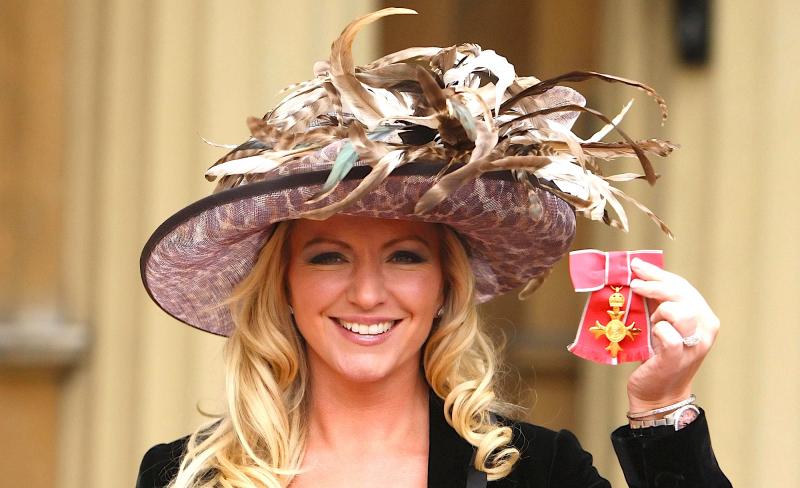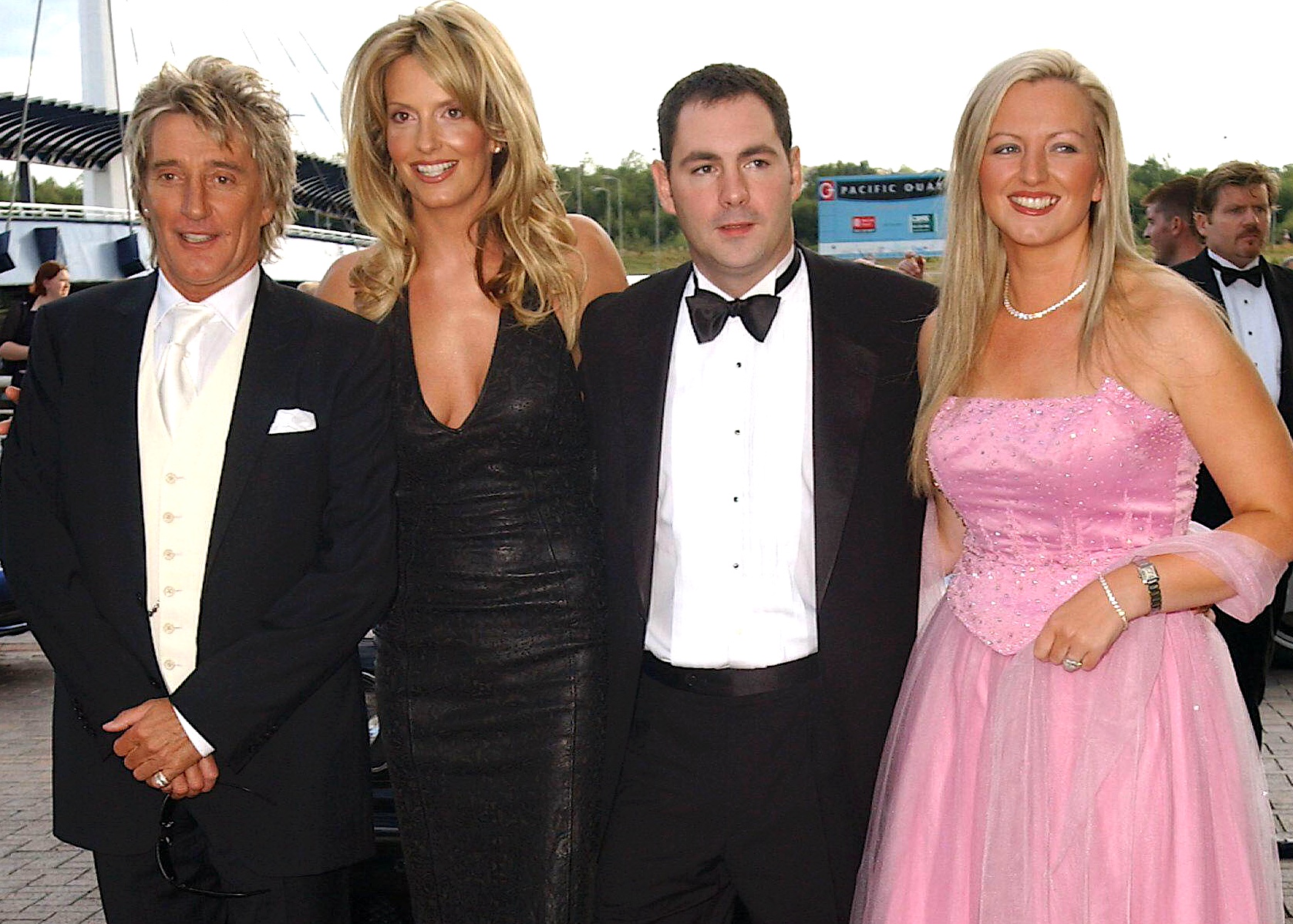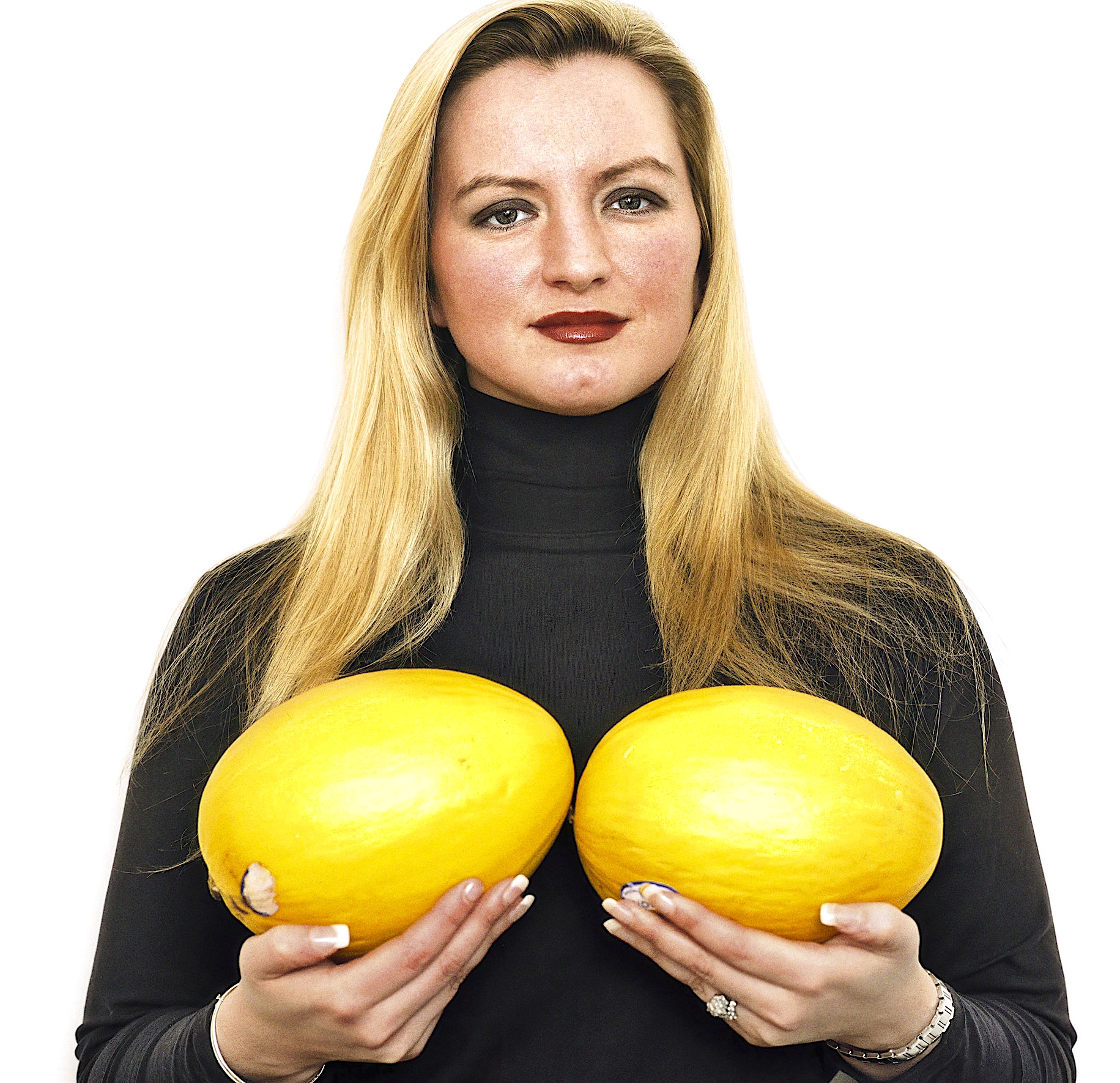The Rise and Fall of Michelle Mone, BBC Two - boom and bust in the lingerie trade | reviews, news & interviews
The Rise and Fall of Michelle Mone, BBC Two - boom and bust in the lingerie trade
The Rise and Fall of Michelle Mone, BBC Two - boom and bust in the lingerie trade
Life in the fast lane with David Cameron's entrepreneurship tsar

As this two-part documentary vividly illustrates, it has been a wild ride for Baroness Mone of Mayfair, the self-made businesswoman who emerged from Dennistoun in Glasgow’s East End in the Nineties and created the Ultimo Bra. This revolutionary undergarment ingeniously enhanced the wearer’s cleavage, using a silicon gel to mimic the feel of real breast tissue.
Though she left school at 15 with no qualifications, the then-Michelle Allan made up for it with raging ambition and armour-piercing willpower. After working as a model and then in marketing for Labatt’s brewers, she and her first husband Michael Mone launched MJM International Ltd in 1996, remortgaging their house to fund it. She then created the Ultimo lingerie brand. Michelle’s do-or-die approach was described by Virginia Marcolin, the lingerie buyer at Selfridges, who found herself subjected to Michelle’s gale-force sales pitch.
 “I thought ‘this girl is not what I’m used to dealing with’,” she recalled, and found her “kind of country bumpkin and a little bit, like, not overly refined, just very authentic.” Michelle was also extremely persistent, and a deal with Selfridges was soon in the bag. She came to embody an ideal of self-motivating female achievement, and as veteran Scots newsman Magnus Llewellin puts it: “A young woman fighting in a male-dominated business world, making a way for herself. That was a great story to tell.”.
“I thought ‘this girl is not what I’m used to dealing with’,” she recalled, and found her “kind of country bumpkin and a little bit, like, not overly refined, just very authentic.” Michelle was also extremely persistent, and a deal with Selfridges was soon in the bag. She came to embody an ideal of self-motivating female achievement, and as veteran Scots newsman Magnus Llewellin puts it: “A young woman fighting in a male-dominated business world, making a way for herself. That was a great story to tell.”.
However, as these intriguing films reveal, she was inclined to push her luck a little too far. She got away with the cheeky fib that Julia Roberts’s cleavage in the film Erin Brockovich had been boosted by an Ultimo bra, but as the business grew, so did Michelle’s ego, and one would question her behaviour at one’s peril. Apparently many of her former employees declined to contribute to these programmes, and those that agreed only did so on condition of anonymity.
She did herself no favours in 2004, when, having signed up Rod Stewart’s girlfriend Penny Lancaster to a £200,000 deal to front an Ultimo ad campaign, she then dropped Lancaster in favour of a £1m deal with Stewart’s ex-wife Rachel Hunter, even though Lancaster had worn the product well. She was devastated, and Stewart was enraged. "I think Michelle Mone is a nasty piece of work, I really do," he steamed. "She is a manipulative cow" (pictured above, Rod, Penny Lancaster, Michael and Michelle Mone).
Husband Michael, it seems, was a somewhat reserved character who also found Michelle too much to cope with, and they divorced in 2011. Michelle bought him out of the company, so it became even more of a one-woman show.
 Was it all too good to be true? There would be criticisms of Mone’s claims about her business’s burgeoning profits, with one observer declaring her to be “a small time businesswoman with a PR exposure far in excess of any actual success”. Nonetheless it was good enough for Prime Minister David Cameron, who in 2015 appointed her his government’s “entrepreneurship tsar” – “tsarina”? – and then made her a Conservative peer.
Was it all too good to be true? There would be criticisms of Mone’s claims about her business’s burgeoning profits, with one observer declaring her to be “a small time businesswoman with a PR exposure far in excess of any actual success”. Nonetheless it was good enough for Prime Minister David Cameron, who in 2015 appointed her his government’s “entrepreneurship tsar” – “tsarina”? – and then made her a Conservative peer.
She had subsequently married the billionaire Doug Barrowman, and everything in their garden at Barrowman’s lavish estate on the Isle of Man appeared to be rosy, until Covid came along. Precise details remain tangled up in lawyers and court orders, but revolve around the £200m worth of government contracts awarded to the company PPE Medpro to produce protective equipment during the Covid crisis. Much of the equipment delivered was found to be unfit for purpose, and the government has been sueing PPE Medpro for £122m.
Meanwhile it seems that Baroness Mone and her three children may be beneficiaries of a trust fund containing £29m of funds originating from PPE Medpro. The Baroness herself has said: "I don't honestly see there is a case to answer. I can't see what we have done wrong." We shall see. Or maybe not.
- Part 2 is on BBC Two on 4 June. Both episodes available on iPlayer
- More TV reviews on theartsdesk
Add comment
The future of Arts Journalism
You can stop theartsdesk.com closing!
We urgently need financing to survive. Our fundraising drive has thus far raised £49,000 but we need to reach £100,000 or we will be forced to close. Please contribute here: https://gofund.me/c3f6033d
And if you can forward this information to anyone who might assist, we’d be grateful.

Subscribe to theartsdesk.com
Thank you for continuing to read our work on theartsdesk.com. For unlimited access to every article in its entirety, including our archive of more than 15,000 pieces, we're asking for £5 per month or £40 per year. We feel it's a very good deal, and hope you do too.
To take a subscription now simply click here.
And if you're looking for that extra gift for a friend or family member, why not treat them to a theartsdesk.com gift subscription?
more TV
 theartsdesk Q&A: Suranne Jones on 'Hostage', power pants and politics
The star and producer talks about taking on the role of Prime Minister, wearing high heels and living in the public eye
theartsdesk Q&A: Suranne Jones on 'Hostage', power pants and politics
The star and producer talks about taking on the role of Prime Minister, wearing high heels and living in the public eye
 King & Conqueror, BBC One review - not many kicks in 1066
Turgid medieval drama leaves viewers in the dark
King & Conqueror, BBC One review - not many kicks in 1066
Turgid medieval drama leaves viewers in the dark
 Hostage, Netflix review - entente not-too-cordiale
Suranne Jones and Julie Delpy cross swords in confused political drama
Hostage, Netflix review - entente not-too-cordiale
Suranne Jones and Julie Delpy cross swords in confused political drama
 In Flight, Channel 4 review - drugs, thugs and Bulgarian gangsters
Katherine Kelly's flight attendant is battling a sea of troubles
In Flight, Channel 4 review - drugs, thugs and Bulgarian gangsters
Katherine Kelly's flight attendant is battling a sea of troubles
 Alien: Earth, Disney+ review - was this interstellar journey really necessary?
Noah Hawley's lavish sci-fi series brings Ridley Scott's monster back home
Alien: Earth, Disney+ review - was this interstellar journey really necessary?
Noah Hawley's lavish sci-fi series brings Ridley Scott's monster back home
 The Count of Monte Cristo, U&Drama review - silly telly for the silly season
Umpteenth incarnation of the Alexandre Dumas novel is no better than it should be
The Count of Monte Cristo, U&Drama review - silly telly for the silly season
Umpteenth incarnation of the Alexandre Dumas novel is no better than it should be
 The Narrow Road to the Deep North, BBC One review - love, death and hell on the Burma railway
Richard Flanagan's prize-winning novel becomes a gruelling TV series
The Narrow Road to the Deep North, BBC One review - love, death and hell on the Burma railway
Richard Flanagan's prize-winning novel becomes a gruelling TV series
 The Waterfront, Netflix review - fish, drugs and rock'n'roll
Kevin Williamson's Carolinas crime saga makes addictive viewing
The Waterfront, Netflix review - fish, drugs and rock'n'roll
Kevin Williamson's Carolinas crime saga makes addictive viewing
 theartsdesk Q&A: writer and actor Mark Gatiss on 'Bookish'
The multi-talented performer ponders storytelling, crime and retiring to run a bookshop
theartsdesk Q&A: writer and actor Mark Gatiss on 'Bookish'
The multi-talented performer ponders storytelling, crime and retiring to run a bookshop
 Ballard, Prime Video review - there's something rotten in the LAPD
Persuasive dramatisation of Michael Connelly's female detective
Ballard, Prime Video review - there's something rotten in the LAPD
Persuasive dramatisation of Michael Connelly's female detective
 Bookish, U&Alibi review - sleuthing and skulduggery in a bomb-battered London
Mark Gatiss's crime drama mixes period atmosphere with crafty clues
Bookish, U&Alibi review - sleuthing and skulduggery in a bomb-battered London
Mark Gatiss's crime drama mixes period atmosphere with crafty clues
 Too Much, Netflix - a romcom that's oversexed, and over here
Lena Dunham's new series presents an England it's often hard to recognise
Too Much, Netflix - a romcom that's oversexed, and over here
Lena Dunham's new series presents an England it's often hard to recognise

Comments
You've presumably not been
You've presumably not been given Part Two to preview. But the title is flabbergasting: what 'fall'? Is she in prison, as she ought to be? Not even outsted from the Lords? It seems like a peculiarly British sort of 'justice'.